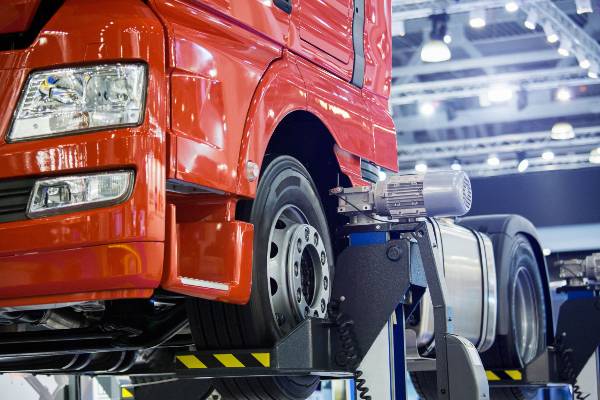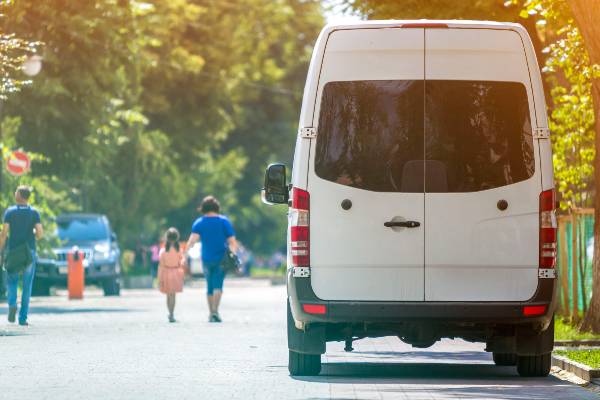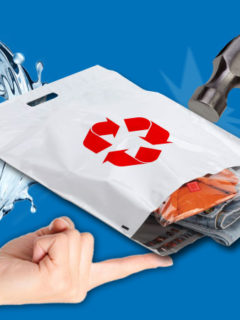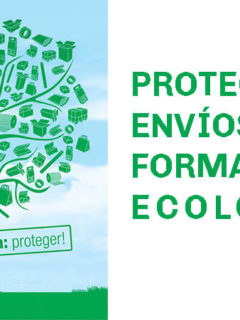By 2050, the EU will have reduced greenhouse gas emissions from transport by 90%, as envisaged by the European Green Pact, a roadmap to make the continent climate neutral within 30 years. To achieve this ambitious goal, green awareness must permeate all areas of society, including the production and distribution of goods to customers and consumers. Implementing an EcoResponsible freight transport strategy is therefore an ethical obligation for your company to be part of the change, as well as an unavoidable Corporate Social Responsibility (CSR) policy.
why adopt an EcoResponsible freight transport strategy?
do you need reasons to stop thinking about it and start acting? Here are three reasons to implement an EcoResponsible freight transport strategy:
- Transport is one of the most environmentally damaging activities in the logistics chain, especially road transport, which is responsible for 71.7% of greenhouse gas emissions from the mobility of passengers and goods in the EU.
- Consumers care about the environment… and therefore demand that their premium brands live up to their expectations, also when it comes to delivering e-commerce orders at minimum environmental cost.
- European legislation foresees increasingly restrictive initiatives for companies that pollute, such as the carbon tax, which will levy extra taxes on the export of goods if production and transport protocols do not meet the same low pollution standards as those in the receiving region.
have you already taken some steps to reduce the environmental impact of moving your products and don’t know where to start? RAJA® will explain how to do it in just three steps!
1. Opt for an environmentally friendly transport fleet
Whether it is our own or subcontracted to suppliers, the first thing to do is to review the characteristics of the fleet of trucks and vans that are in charge of delivering our products. We will look at two issues:
The use of less polluting vehicles
Compared to combustion engines, an EcoResponsible transport strategy will prioritise less polluting vehicles, both acoustically and in terms of CO2 and NOx emissions (carbon dioxide and nitrogen oxides). The use of electric and hybrid models is required, as well as gas-powered trucks, which we have recently incorporated in RAJA® for the dispatch of our own orders.

Our commitment to the environment is to have as many green kilometres as possible in the short term, both in imports and deliveries to our customers. RAJA® is committed to sustainable and Eco-Responsible Logistics – Antonio Reyes, Operations and Logistics Coordinator at RAJA® Spain
Following a strict maintenance plan
The difference in energy consumption and, therefore, in polluting potential, between a vehicle that follows a correct maintenance plan and one in which this aspect is neglected is overwhelming. And it is as simple as, for example, keeping an eye on the tyre pressure. Under-inflated tyres, with an air level 17% lower than recommended, means spending one litre more of fuel for every 100 kilometres travelled.

2. Planning an EcoResponsible freight route
Optimising the delivery route is essential for both environmental and efficiency reasons: it saves the company time and money. Fleet management software automates this task to ensure that all goods are delivered on time:
- With the minimum number of vehicles
- With as few staff as possible
- By travelling the shortest distance
- And spending as little time in transit as possible
Geolocation also enables real-time adjustments to be made in the event of unforeseen events such as traffic jams, roads closed due to road works, absent receivers, etc.
Urban or last mile logistics is an additional challenge, as the distribution of products tends to take place more and more within ZBE (Low Emission Zones) or ACCE (Zero Emission Central Areas) in cities. In these areas, the circulation of the most polluting vehicles is limited. The General Directorate of Traffic (DGT) prescribes environmental badges which, in the case of large fleets, can be obtained through the National Association of Motor Vehicle Dealers, Repair and Spare Parts (Ganvam).

To further refine the EcoResponsible freight transport strategy, it is advisable that vehicles do not return empty: the journey can be used to transport other products, or to return Returnable Transport Packaging (RTP) to the origin.
3. Optimising packaging: lighter and less bulky packages
Selecting the perfect packaging is the third decisive factor in an EcoResponsible freight transport strategy. The secret lies in making packages as light and as compact as possible. Here are a few ideas:
- Include variable-height boxes in your packaging mix to help you adjust the volumetric weight of your shipments.
- Find out about the carbon footprint of packaging and choose the most EcoResponsible alternatives, optimising the packaging of your items with biodegradable, recyclable or bio-based materials.
- Check out the RAJA® method to reduce the size of your packaging in just 5 steps.
At RAJA®, the environment comes first! Visit our selection of EcoResponsible packaging, always in stock and with 24/48h delivery, and start greening your freight strategy now – we’re here to help!
















